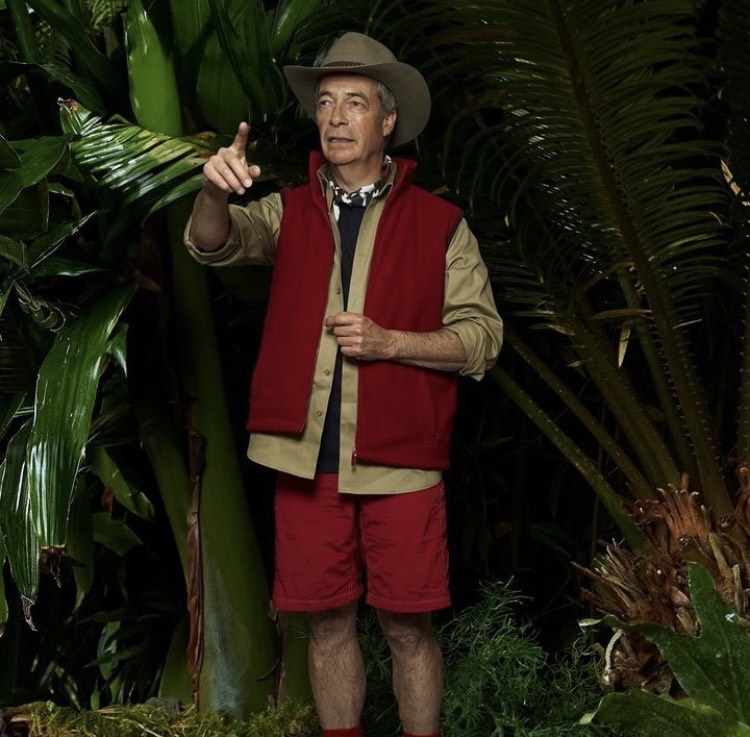
TV Writer Charley Gordon-Boyle comments on the ethics and implications of giving politicians a platform as contestants on reality shows
In 1999, failed Conservative parliamentary candidate and journalist Boris Johnson made his debut appearance on Have I Got News For You? The political panel show was notorious for its biting commentary, with Private Eye editor Ian Hislop serving as a team captain. Like most panel shows, it has been criticised by outlets such as The Guardian for delivering said commentary in a manner that favoured white male comedians.[1] However, when the guests are politicians, the format could be used as a form of accountability. The show is now in its 66th season, but some suggest that it has lost its edge and influence.
However, more politically savvy operators used the format to bolster their image. Notably, Alastair Campbell, who served as Director of Communications under Tony Blair, is a panel show staple. His dry wit and spin doctor tactics made it hard for comedians to criticise some of his governmental policies. Johnson, who boasted a similar professional background, was no different. His buffoonery made him more appealing to voters. He was not a dull stalwart like Gordon Brown. He was just a bloke named Boris that you could get a pint with. BAFTA even nominated him for Best Entertainment Performance.
Do the people who want Farage kicked off I’m a Celeb only complain about politicians they disagree with?
But I digress. In these situations, it is always important to discuss whether opposition to controversial contestants is really opposition to free speech. Johnson isn’t the only politician to use light entertainment to his advantage. Jess Phillips, Labour MP for Birmingham Yardley, is also a panel show regular. Do the people who want Farage kicked off I’m a Celeb only complain about politicians they disagree with?
For me, it’s a question of ethics. Reality TV arguably shaped the outrage culture of the past two decades, through platforming exaggerated and dehumanising programmes. A reality show also infamously bolstered the career of former US President Donald Trump, who has since been indicted on over 91 felony counts. Although ITV’s history dates to the 50s, the network built its current reputation on rage-bait TV. It became notorious for programmes like The Jeremy Kyle Show and The Biggest Loser. These divisive shows were said to victimise marginalised communities and suggested that the UK’s biggest social problems were caused by fat and poor people.
The real-life implications of platforming people like Farage are clearer than ever. In 2021, it was reported that in the wake of the Brexit vote, Farage’s biggest political achievement, hate crime rose around 15-25% in the latter half of 2016. Moreover, this season of I’m a Celebrity! airs alongside the Brianna Ghey murder trial. Ghey, a 16-year-old transgender girl, was stabbed to death earlier this year. Despite the tragic circumstances, trans rights groups recently criticised the media’s consistent dehumanisation of the community. Notably, Jane Fae, Head of Trans Media Watch, described coverage of the trial and of Ghey’s gender identity, as “disrespectful, abusive and hypocritical.” Similarly, Jolyon Maugham, director of the Good Law Project, argued that platforming uninformed and uneducated beliefs about transgender people impacts “the community’s everyday sense of safety.” In contrast, Farage berated “trans rights extremists” and described campaigners as “some of the worst and the most aggressive, most hectoring and bullying of the lot.”
It is viewers’ responsibility to respond to his casting as they see fit
Yet, with all this furore aside, viewers and by extension, voters, are not blameless for the way they respond to these politicians. Although I personally believe ITV has an ethical standard to uphold when platforming people like Farage, it is viewers’ responsibility to respond to his casting as they see fit. And the response has been overwhelmingly negative. Viewing figures on opening night dropped from 6.95 million, almost 2 million down from last year’s 9.1 million. Recent YouGov polling also suggests that the series is not rehabilitating his image, as 57 percent of people still have an unfavourable opinion of the right-winger. It seems that nowadays, light entertainment cannot sanitise controversial policies. While audiences in 1998 may have drunk Johnson’s Kool-Aid, viewers in 2023 appear to be asking more from their broadcasters. And for me, it’s a welcome change.
Read more TV articles here:

Comments